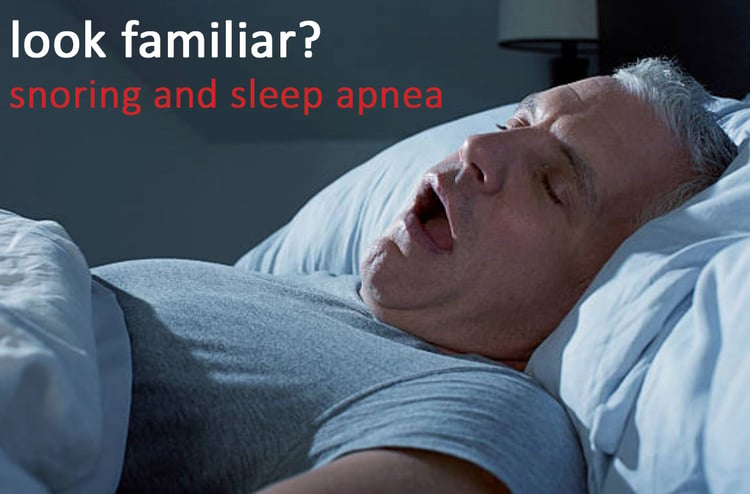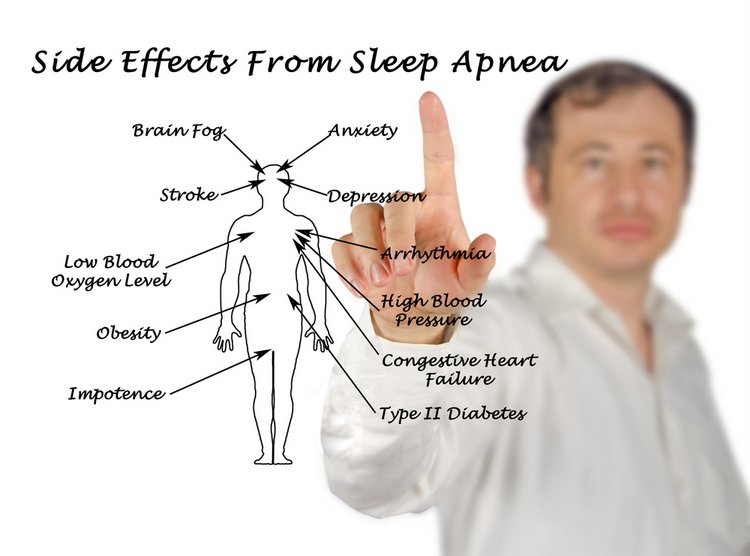
Snoring is one of the most well-known symptoms of obstructive sleep apnea (OSA). The reason why so many sleep apnea sufferers snore is due to the tissues in the back of the throat relaxing and blocking the airway. When the airway becomes blocked, a vibration occurs and creates a sound known as snoring. Snoring can be influenced by a person's anatomy, weight, and lifestyle factors such as alcohol consumption.
However, with as many as 90 million Americans suffering from snoring, it may not always be a sign that an individual has OSA. To know whether or not you or your partner have obstructive sleep apnea, you must be aware of the other symptoms that happen with snoring and necessitates a diagnosis of sleep apnea.
Most Common Symptoms of Sleep Apnea
In addition to the heavy breathing that a sleep apnea sufferer experiences at night, here are other common symptoms of obstructive sleep apnea:
- Experiencing cessations in breathing during sleep in the night
- Gasping for air when sleeping
- Waking up with a dry mouth
- Experiencing headaches in the morning
- Having difficulty staying asleep
- Experiencing excessive sleepiness during daytime hours
- Having difficulty concentrating or paying attention
- Being irritable or cranky on a consistent basis

Snoring or Sleep Apnea?
After reviewing the list of the most common symptoms for obstructive sleep apnea, you might have a clue as to whether or not your snoring may be a sign of a more serious condition. All of the above listed indicators point to the fact that breathing is obstructed during sleep. Typical snoring does not regularly wake a person up while sleep apnea snoring does.
If you do not wake often during the night as a result of snoring, it's possible that your snoring may be caused by the following factors:
- Your age may cause your throat to narrow and your muscle tone to decrease as you get older.
- Your weight may encourage snoring due to poor muscle tone and increased fatty tissue around the neck.
- Your body structure and anatomy may lead to snoring if your air passages are narrow. Men oftentimes have narrow air passages and a narrow throat that leads to snoring. Other anatomical features that can lead to snoring include a cleft palate and enlarged adenoids.
- Sinus or nasal conditions may lead to snoring if your airways are blocked.
- Sleep position may cause the flesh in your throat to relax and block your airway.
- Lifestyle factors such as smoking, alcohol consumption, and taking certain medications may increase the tendency for the throat to relax and snoring to occur.
If you or your partner are regularly waking in the middle of the night gasping for air and facing many of the problems included in the symptom list, it would be a wise idea to consult with a sleep specialist to see if obstructive sleep apnea is the culprit of your excessive snoring.
When to Consult with a Sleep Specialist
After reviewing the signs of obstructive sleep apnea, you likely have an idea of whether or not your snoring might be caused by cessations in breathing during sleep. If you find yourself checking off more than one symptom on the above-mentioned list, you should contact a medical professional immediately. Dangers of undiagnosed sleep apnea include the development of high blood pressure, heart disease, type 2 diabetes, obesity, adult asthma, acid reflux, and increased chances of getting into car accidents.
At the Anchorage Sleep Center, certified sleep specialists are ready to provide you with a consultation to see if your snoring is a result of obstructive sleep apnea. From there, you'll be able to explore the best options to get your sleep and your health back on track.
The team of sleep professionals at the Anchorage Sleep Center are eager and ready to help answer your questions. Contact a sleep specialist by emailing info@ancsleep.com or by sending a message online.

